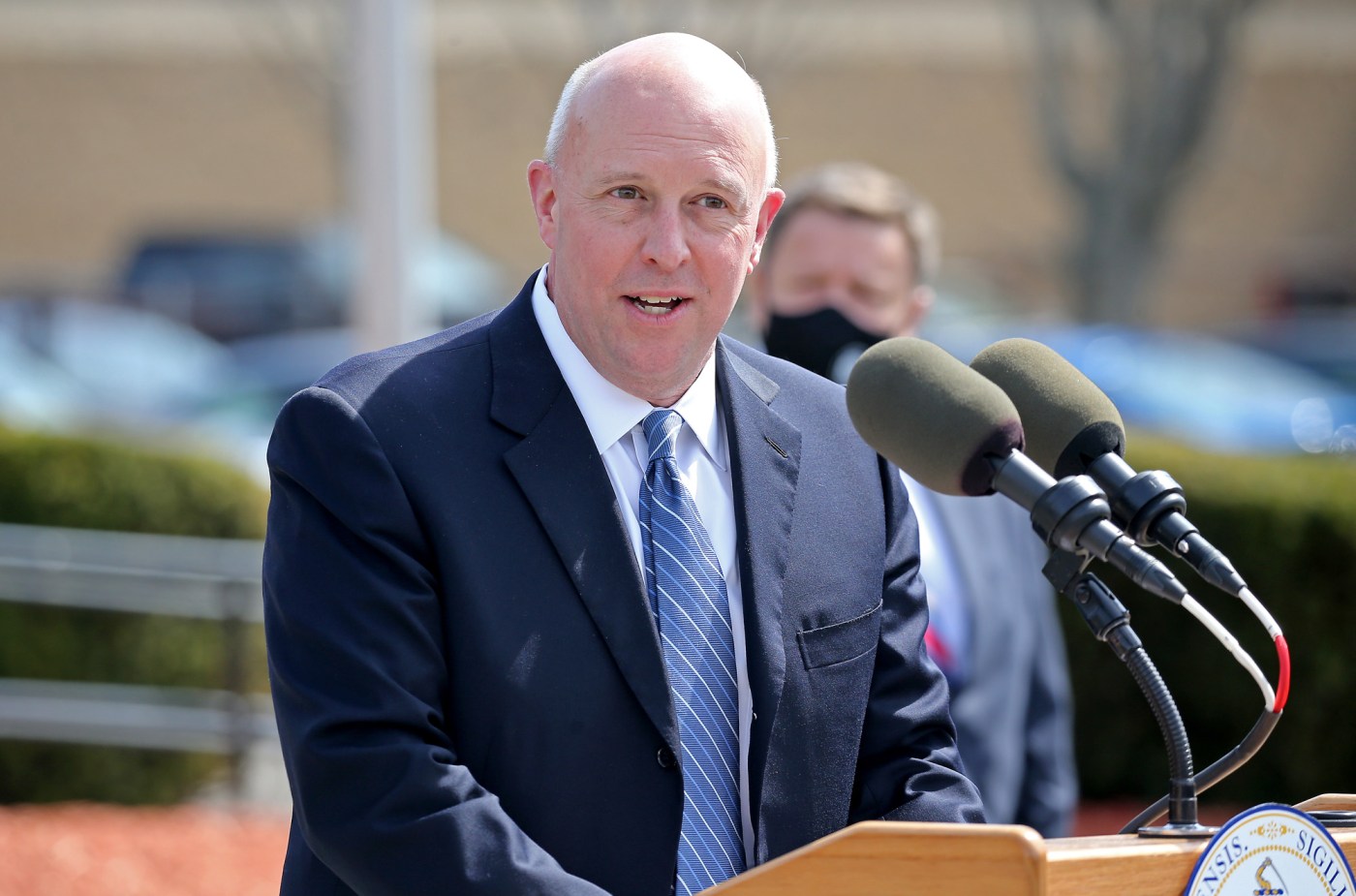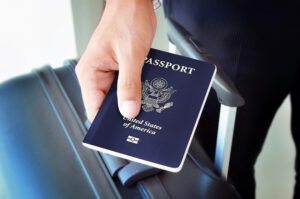
GOP’s Mike Kennealy petitions Mass. regulators not to enforce campaign loan limit law
Republican gubernatorial hopeful Mike Kennealy petitioned the state’s campaign finance office this past week to reconsider Massachusetts’ $200,000 limit on the amount of cash a candidate for governor can loan themselves each election, according to a letter penned by a D.C. lawyer.
Kennealy made the pitch through an attorney weeks after he launched his bid for governor with a pledge to seed his campaign with $2 million from his own personal wealth. His campaign said that waiving the loan limit is necessary to “protect” Kennealy’s family in the event of a “tragedy.”
Chris Ashby, a Washington, D.C.-based lawyer enlisted by Kennealy, said a 1976 U.S. Supreme Court ruling renders the Massachusetts state law capping the amount of money a gubernatorial candidate can loan to themselves each election cycle unconstitutional.
But the attorney said the Office of Campaign and Political Finance “may never have had the opportunity to consider the matter.”
“Therefore, for the reasons set forth below, we request that your office consider the constitutionality of the candidate loan limitation in light of (Buckley v. Valeo), and issue appropriate written guidance or other response making clear that OCPF will not enforce the loan limitation,” the letter said.
Ben Hincher, Kennealy’s campaign manager, said the former secretary of housing and economic development under Gov. Charlie Baker will hand his campaign $2 million regardless of what state regulators decide.
“This is a request to offer protection for Mike’s family in the unlikely event of an unforeseen tragedy, but if the request isn’t granted, Mike will be contributing $1.8 million,” Hincher said in a statement to the Herald Saturday.
Kennealy raised more than $311,000 in April, a majority of which came through a $200,000 loan to himself, according to his campaign and state data.
A spokesperson for the Office of Campaign and Political Finance declined to comment on the request.
In the letter to campaign finance regulators, Ashby points to the Jan. 30, 1976, U.S. Supreme Court opinion in the case of former U.S. Sen. James Buckley of New York versus Francis Valeo, the then-secretary of the U.S. Senate and ex officio member of the Federal Election Commission.
Buckley and others argued that the Federal Election Campaign Act of 1971 limitation on the use of money for political purposes violated First Amendment guarantees for free expression because no “political expression could be made without the expenditure of money,” according to the Federal Election Commission.
Ashby said the court ruled that a “ceiling on personal expenditures by candidates on their own behalf … imposes a substantial restraint on the ability of persons to engage in protected First Amendment expression.”
The attorney said that under the ruling, the Massachusetts state law limiting the amount a candidate can loan to themselves or their campaign committee “constitutes a limitation on the candidate’s personal expenditures in violation of the First Amendment to the United States Constitution.”
He also pointed to a 2004 ruling from the United States Court of Appeals for the Sixth Circuit in which the court struck down a Kentucky law that imposed a $50,000 cap on the amount of money a candidate could loan to his or her campaign.
The U.S. Court of Appeals found that limitations on candidates’ loans are limitations on campaign expenditures, and limitations on campaign expenditures are prohibited by the 1976 U.S. Supreme Court ruling, the letter to Massachusetts regulators said.
“Indeed, just as the federal law at issue in Buckley, and the Kentucky law at issue in Anderson, Massachusetts law defines a ‘contribution’ to include ‘any… loan’ to a candidate or candidate’s committee,” Ashby wrote. “In fact, Massachusetts law further clarifies that a loan also is an ‘expenditure.’”
Kennealy’s push to loan himself millions came after his campaign raised more than $130,000 in contributions in April, his first month running for governor, according to his aides.
He also spent $54,600 in April, according to state data, including $7,266 with Opinion Diagnostics, a polling company run by Brian Wynne, the former campaign manager for Baker.
Opinion Diagnostics conducted a survey in April that found Gov. Maura Healey was in an “extremely vulnerable position” and alleged Kennealy had a better chance at beating the first-term Democrat in 2026 over other potential Republican challengers.
Kennealy also dished out more than $7,000 to BW Creative Agency, a marketing agency that regularly does work with political candidates, and tens of thousands to consultants and campaign staff, state data showed.
Massachusetts Democratic Party Chair Steve Kerrigan said Massachusetts voters “have no interest in weak leadership that refuses to stand up to Donald Trump’s actions that hurt Massachusetts every day.”
“The majority of his April fundraising comes from a personal donation because he has no real grassroots support. Voters are sending a clear message: we need a governor who will stand up to Donald Trump, not on the sidelines like MAGA Mike Kennealy,” Kerrigan said in a statement to the Herald.
Kennnealy is the only Republican to have formally entered the 2026 gubernatorial election.
Brian Shortsleeve, a former MBTA executive who helped fundraise for Florida Gov. Ron DeSantis, previously said he is considering a bid and enlisted the services of a well-known Republican strategist.
Healey said in February that she plans to run for reelection.
A poll that same month of 700 Massachusetts residents conducted by the University of Massachusetts Amherst found Healey had a 52% overall approval rating.
The survey also showed that only 15% of respondents would back Kennealy over Healey, and 12% would vote for Shortsleeve. But in both instances, a large share of those polled said they were still unsure of who they would support in the 2026 gubernatorial election.
Gov. Maura Healey (Staff Photo By Stuart Cahill/Boston Herald)


